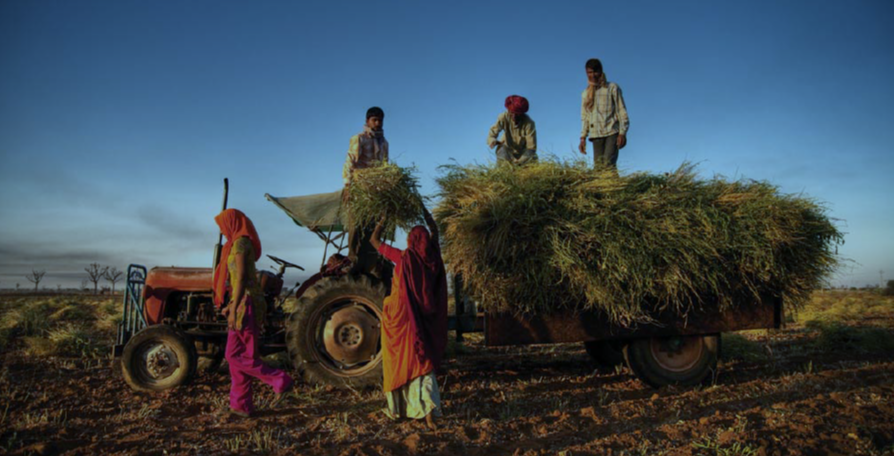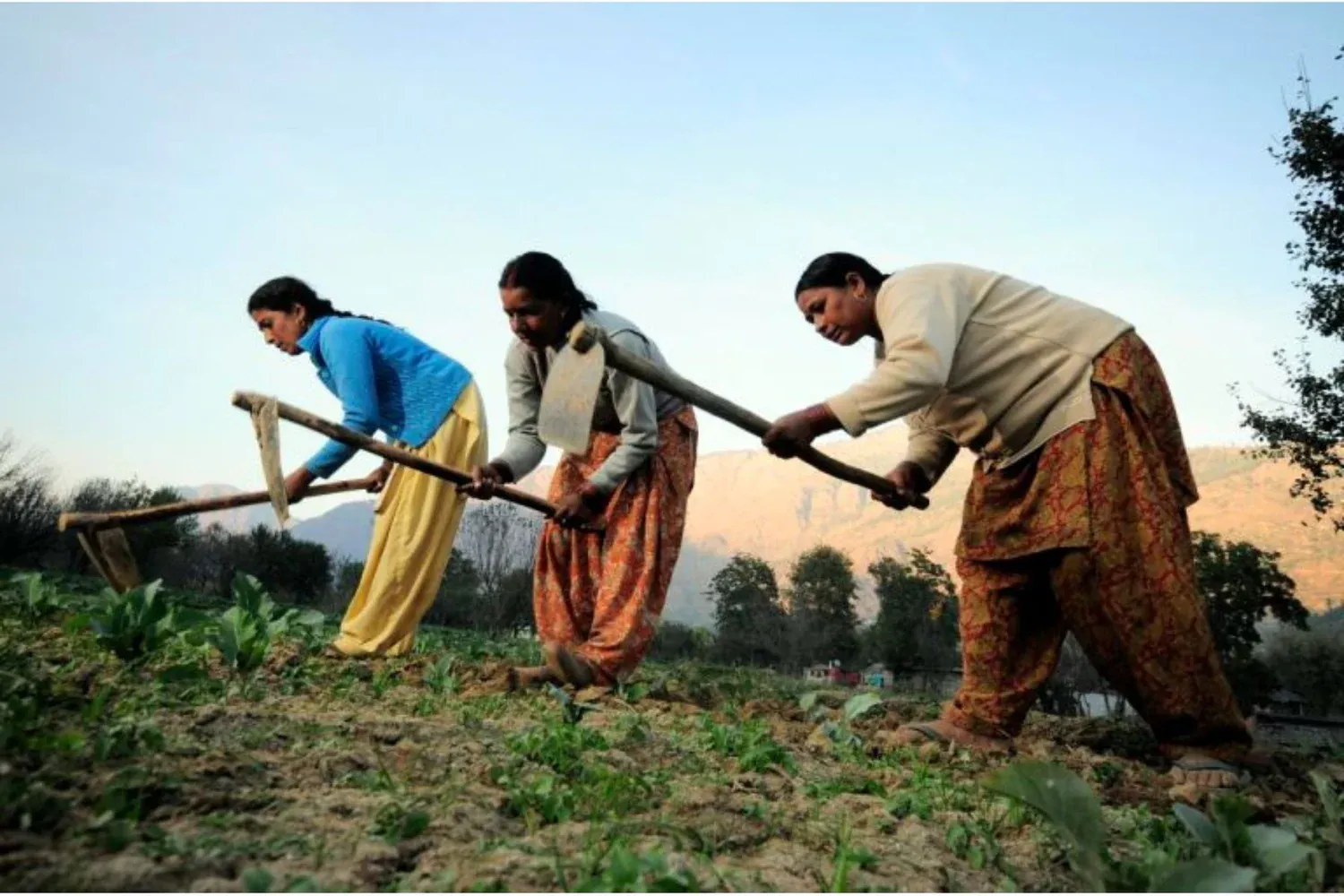Discover Khanas timeless lessons on farming sustainability and life Ancient wisdom that resonates powerfully in todays world of climate change
Introduction Who Was Khana
Khana often celebrated as the first female astrologer and poet of ancient Bengal occupies a unique place in South Asian folklore and agrarian wisdom Her origins are shrouded in legend with most accounts placing her life between the 9th and 12th centuries Despite the lack of concrete historical records Khanas legacy endures through her succinct practical couplets known as Khanar Bachan Khanas Sayings These verses passed down orally for generations offer advice on farming weather social conduct and the rhythms of rural life
Khanas words are remarkable for their clarity accessibility and deep rooted understanding of the natural world Her teachings though ancient remain surprisingly relevant in an era grappling with the challenges of sustainable agriculture and climate change In this essay we explore Khanas agricultural wisdom examining how her insights can still guide farmers and communities today

The Timeless Value of Khanas Teachings
Oral Tradition and Enduring Relevance
The survival of Khanar Bachan through oral tradition is a testament to their resonance with the everyday lives of ordinary people In a time when literacy was rare especially among women Khanas couplets were memorized recited and woven into the fabric of rural culture This oral legacy ensured that her practical advice was not only preserved but adapted to changing contexts over centuries
Khanas sayings are more than agricultural instructions they are a philosophy of life Her verses blend observation experience and an ethical vision of humanitys relationship with the land This synthesis of practical and moral guidance has allowed her teachings to transcend generations
The Importance of Timing and Care in Farming
One of Khanas central themes is the critical role of timing and attentive care in agriculture She warns that simply sowing seeds at the right season is not enough without persistent effort even the most promising crops can fail
Punyam Ashadhe ye dhore dhan
Taar dukh chirakal
Taar badale hoy bat
Ghoro taar na thake bhat
This couplet underscores that neglect during the crucial early monsoon month of Ashadh can doom the harvest leading to lasting hardship Khanas message is clear potential is not enough it must be nurtured with vigilance and labor
She further cautions against ignoring experienced advice
Dhan bole tare bachi
Ye na shune hobe hani
Here Khana emphasizes the importance of selecting good seeds and heeding the wisdom of elders Without this all efforts risk being in vain

Modern Parallels
Today agricultural science echoes Khanas insights Crop success depends on timely sowing attentive management and the ability to respond to changing conditions Neglect whether due to complacency or lack of knowledge remains a leading cause of crop failure worldwide
Farming as a Continuous Responsibility
Khana does not romanticize farming she presents it as an ongoing cycle of work observation and adaptation Farming in her view is not a seasonal or occasional activity but a year round commitment The land demands constant dialogue plowing sowing weeding irrigating and harvesting must all be timed with precision and care
This philosophy reflects an early understanding of sustainability Nature offers opportunities but only those who engage with it patiently and persistently can reap its rewards Khanas work ethic is a call to continuous engagement not just in agriculture but in all walks of life
Land Preparation and Soil Care
Khanas wisdom begins long before seeds touch the soil She insists that the foundation of a successful harvest lies in thorough land preparation
Pochishe pochish bar kore chash
Tahar ghore Lokkhi bas
Translation
If a farmer plows twenty five times by the 25th day of the season prosperity will reside in his home
This advice highlights the importance of repeated plowing to soften and aerate the soil remove weeds and promote healthy root growth Modern agronomy supports this view proper tillage improves soil structure enhances water retention and reduces pest pressure
Lesson
Good foundations yield good results Whether in farming education or personal development preparation is crucial for success
The Right Time to Sow Seeds
Khanas observations about sowing reflect her deep understanding of Bengals climate
Jyoisthhe dhan ropon kora uttom
Ashadhe ta loye fol
Translation
Sow paddy in the month of Jyeshtha May June to ensure it ripens by Ashadh June July
She recognized that early sowing timed with the arrival of the monsoon allows crops to mature before the risk of floods or droughts increases This synchronization with natural cycles is as relevant today as it was a millennium ago
Modern Context
Contemporary farmers still rely on careful timing guided now by scientific weather forecasts and climate data Yet the principle remains unchanged aligning agricultural activities with environmental rhythms is essential for maximizing yields and minimizing risks
Choosing the Right Land
Not all land is created equal and Khana was acutely aware of this
Jekhane kada sekhane dhan
Jekhane bali sekhane shashya
Translation
Paddy grows best in clayey moist soil pulses thrive in sandy well drained land
This couplet demonstrates Khanas empirical approach She observed that rice a water intensive crop flourishes in heavy soils that retain moisture while pulses and other dry crops do better in lighter sandy soils Her insights predate the formal science of soil classification but remain foundational to agronomy
Hard Work vs Luck
Khanas teachings repeatedly stress the supremacy of hard work over luck
Bina chashe keho na pay dhan
Khatle fol oloshe mlan
Translation
No one gets a harvest without plowing Only through effort comes success idleness leads to loss
This universal principle applies beyond agriculture Khanas message is that diligence not fate determines outcomes Her words resonate with anyone striving for achievement whether in farming education or entrepreneurship
Reading Natural Signs Agro Meteorology in Khanas Sayings
Khanas couplets are filled with advice on interpreting natural phenomena winds rains animal behavior to forecast agricultural outcomes
Uttori bayu jodi dine na boi
Krishok tobo joy joy
Translation
If the northern wind does not blow during the day at the wrong time the farmer can expect a good harvest
Such observations formed an early form of agro meteorology allowing farmers to anticipate weather changes and adjust their practices accordingly While modern technology offers sophisticated forecasts the skill of reading natural signs remains valuable especially in regions where access to technology is limited
Wealth and Prosperity Through Farming
Khana does not view farming as mere subsistence She sees it as a path to prosperity and pride
Chashe chashe dhan briddhi hoy
Oloster mukhe bhat noy
Translation
By constant farming wealth grows In the mouth of the lazy rice does not enter
Her words dignify agricultural labor celebrating it as a source of wealth and social standing This perspective challenges the stigma often attached to manual work and reaffirms the importance of farmers in society
Farming as a Way of Life
For Khana agriculture is more than an economic activity it is a way of life deeply intertwined with nature time and ethics She sees farming as a daily conversation between humans and the earth where respect patience and care are rewarded and neglect is punished
This holistic view anticipates contemporary ideas of sustainable agriculture which emphasize harmony with natural systems community well being and ethical stewardship of resources
Reading the Seasons Correctly
Khanas knowledge of seasonal cycles is another hallmark of her wisdom She insists that every stage of farming plowing sowing harvesting must be synchronized with the changing seasons
Pholey taar hoyi fol
Khate gure na mile bhat
Even if a plant bears fruit improper timing and care can still leave the farmer with inedible grains This is a powerful reminder that results depend not just on action but on the quality and timing of that action
Broader Implications
Khanas teachings extend beyond agriculture They offer a metaphor for all aspects of life success depends on preparation timing and continuous effort
The Ethics of Hard Work
Khanas celebration of hard work is a recurring motif
Bina chashe keho na pay dhan
Khatle fol oloshe mlan
She frames farming as an ongoing relationship with the land requiring daily attention and effort This ethic of diligence is as relevant today as it was in her time
Care for Livestock and Animals
Khana recognizes that farming is incomplete without the care of animals which are essential for plowing transportation and dairy production
Goru bachur jodi rakh jatone
Fol pabe se bhora ratone
Translation
Care for cattle and calves carefully they will reward you richly
Her advice anticipates modern principles of animal husbandry emphasizing the importance of feeding shelter and healthcare for livestock Well cared for animals contribute to farm productivity and rural prosperity
Seasonal Advice for Farmers
Khanas teachings are finely attuned to the cycles of the year She offers specific advice for each season
Summer Grishma Harvest prepare storage irrigate dry lands
Monsoon Barsha Sow main crops protect fields from flooding maintain bunds
Autumn Sharad Harvest early crops prepare for winter planting
Winter Hemanta Focus on pulses mustard wheat
Spring Basant Plant vegetables maintain orchard trees
This calendar based guidance reflects a deep synchronization between rural life and natures clock By aligning their work with the seasons farmers can maximize productivity and resilience
Social and Philosophical Teachings
Khanas wisdom extends beyond the fields She offers practical and symbolic advice on household management social harmony and personal conduct
Barir majhe brikkho na rakh
Bari ghore koribe lagh
Translation
Dont grow large trees inside the house courtyard it will weaken the house
This couplet is both literal tree roots can damage foundations and metaphorical warning against letting problems take root in the heart of ones life
Khana also teaches thrift discipline respect for elders and harmony with neighbors She sees success in farming and life as interconnected each reflecting and reinforcing the other
The Relevance of Khanas Teachings Today
In an era of chemical intensive agriculture climate change and environmental degradation Khanas teachings offer an alternative vision
Work with nature not against it
Respect the land animals and seasons
Value patience planning and continuous care
Build communities rooted in cooperation and mutual respect
Her wisdom anticipates many principles of modern sustainability soil conservation organic farming integrated pest management long before these became scientific disciplines
Khanas Bachan A Living Philosophy
Khanas couplets are more than agricultural instructions they are a philosophy of living close to the earth with humility intelligence and love Her teachings remind us that sustainability is not a modern invention but an ancient practice grounded in observation respect and ethical stewardship
Soil must be respected not exploited
Animals must be cared for not used cruelly
Seasons must be honored not forced
Communities must be nurtured not divided
These principles are as urgent today as they were in Khanas time As we confront the challenges of food security environmental crisis and social fragmentation her wisdom offers a path toward resilience and renewal
Conclusion Why Khanas Wisdom Still Matters
Khanas Bachan endure because they speak to universal truths about the land about work about life itself Her teachings are a call to humility diligence and harmony with the world around us In a time of rapid change and uncertainty her voice reminds us that some of the most profound solutions are rooted in ancient knowledge
More than a thousand years after she lived Khanas words remain as wise and relevant as ever a shining example of sustainable living and ethical engagement with the earth Her legacy challenges us to listen to learn and to live in balance with the rhythms of nature
